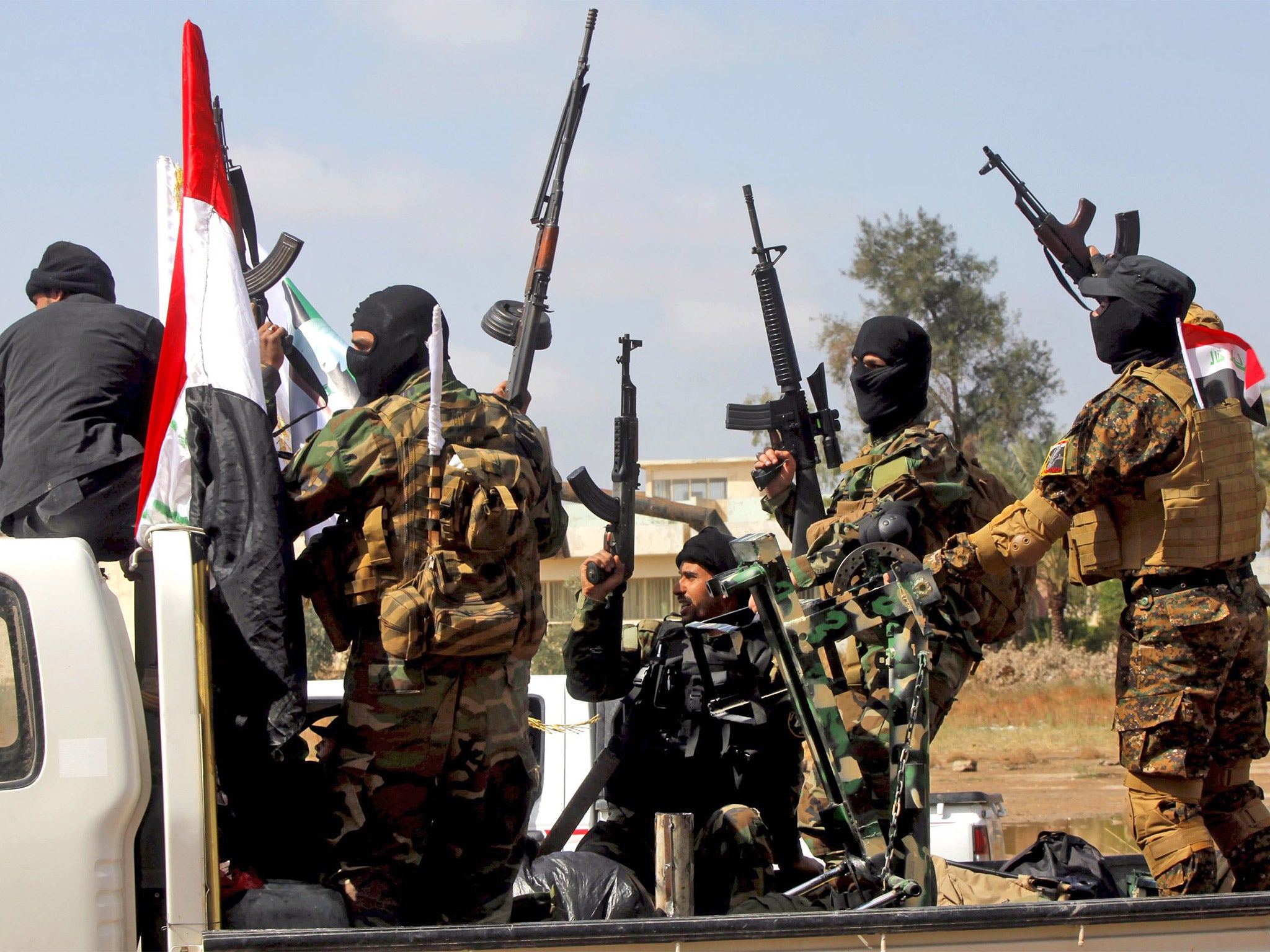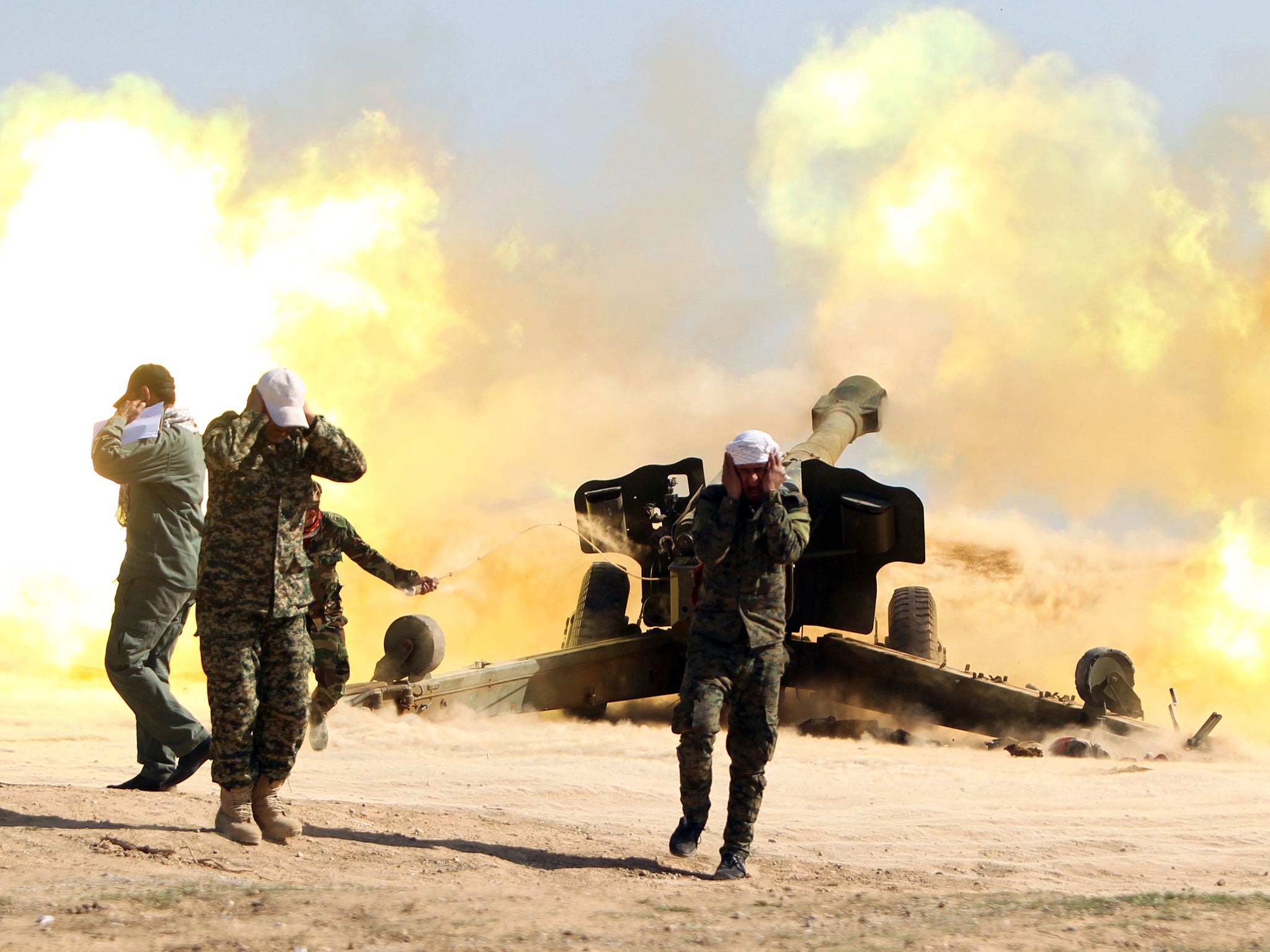US begins airstrikes in Tikrit in support of a stalled Iraqi ground offensive
The airstrikes were 'ongoing,' an official said without providing details.

Your support helps us to tell the story
From reproductive rights to climate change to Big Tech, The Independent is on the ground when the story is developing. Whether it's investigating the financials of Elon Musk's pro-Trump PAC or producing our latest documentary, 'The A Word', which shines a light on the American women fighting for reproductive rights, we know how important it is to parse out the facts from the messaging.
At such a critical moment in US history, we need reporters on the ground. Your donation allows us to keep sending journalists to speak to both sides of the story.
The Independent is trusted by Americans across the entire political spectrum. And unlike many other quality news outlets, we choose not to lock Americans out of our reporting and analysis with paywalls. We believe quality journalism should be available to everyone, paid for by those who can afford it.
Your support makes all the difference.At Iraq's request, the US began airstrikes in Tikrit on Wednesday in support of a stalled Iraqi ground offensive to retake the city from Islamic State fighters, a senior Us official said.
The airstrikes were "ongoing," the official said without providing details. The official spoke on condition of anonymity because the attacks had not yet been officially announced.
An Associated Press correspondent in Tikrit reported hearing warplanes overhead late Wednesday, followed by multiple explosions.
Iraq began the Tikrit ground offensive in early March without requesting US air support, even as it welcomed help from Iran.
In an address to the nation Wednesday evening, Prime Minister Haider al-Abadi predicted success in Tikrit but did not say the US was providing airstrikes.
"We have started the final phase of the operation in Tikrit," he said. "You will liberate your ground, not anyone but you," he said, in a speech to the Iraqi people.
Al-Abadi praised all the groups involved in the battle against the Islamic State group, including the so-called Popular Mobilization Forces, which the US calls Iranian-backed militias, the Sunni tribes and coalition forces. But he fell short of confirming that the coalition is playing a direct role in Tikrit.
US airstrikes in Tikrit raise highly sensitive questions about participating in an Iraqi campaign that has been spearheaded by Iraqi Shiite militias trained and equipped by Iran, an avowed US adversary.
Iran has provided artillery and other weaponry for the Tikrit battle, and senior Iranian advisers have helped Iraq coordinate the offensive. Iraq pointedly did not request US air support when it launched the offensive in early March.
Recently, the offensive has lost momentum. Col. Steve Warren, a Pentagon spokesman, said Wednesday the Iraqi forces have encircled Tikrit but not yet made significant inroads into the heavily defended city limits.
"They are stalled," he said.
The US has hundreds of military advisers in Iraq helping its security forces plan operations against the Islamic State, which occupies large chunks of northern and western Iraq. But the US has said it is not coordinating any military actions with the Iranians.

Warren said that at Baghdad's request the US began aerial surveillance over Tikrit in recent days and is sharing the collected intelligence with the Iraqi government.
The US-led air campaign, launched in August and joined by several European allies, has allowed Iraqi forces to halt the IS group's advance and claw back some of the territory militants seized last summer.
But the growing Iranian presence on the ground has complicated the mission, with Washington refusing to work directly with a country it views as a regional menace, yet is currently embroiled with Iran in sensitive negotiations over a nuclear deal.
The prominent role of the Shiite militias in the fight to retake Tikrit and other parts of Iraq's Sunni heartland has meanwhile raised concerns that the offensive could deepen the country's sectarian divide and drive Sunnis into the arms of the Islamic State group.
Hadi al-Amiri, leader of the Badr Organization and a commander of Iraq's Shiite militias, told reporters in Samarra:
"If we need them (the US-led coalition) we will tell them we need them. But we don't need the coalition. We have surveillance planes over our heads already. The participation of US planes hinders out operations... If we need it, we'll tell our government what we need."
He claimed that the militias, the overwhelming majority of which is made up of Shiite fighters, have their own surveillance drones. "We buy them anywhere," he said. "We have our own ... controlled by Iraqis."
AP
Join our commenting forum
Join thought-provoking conversations, follow other Independent readers and see their replies
Comments